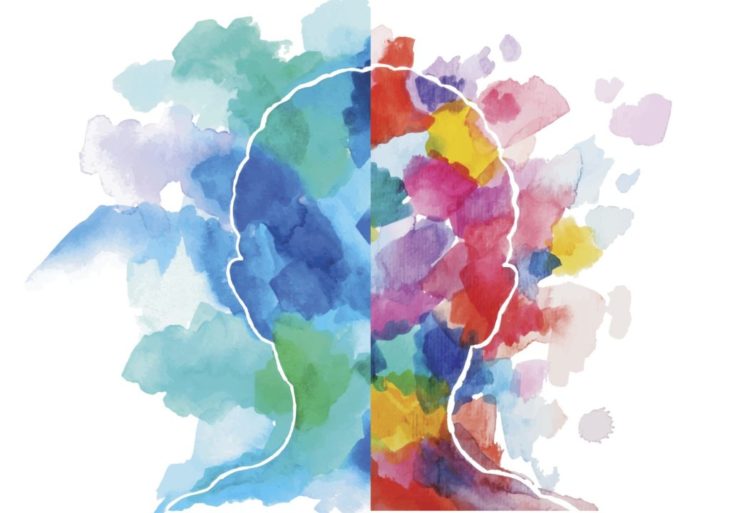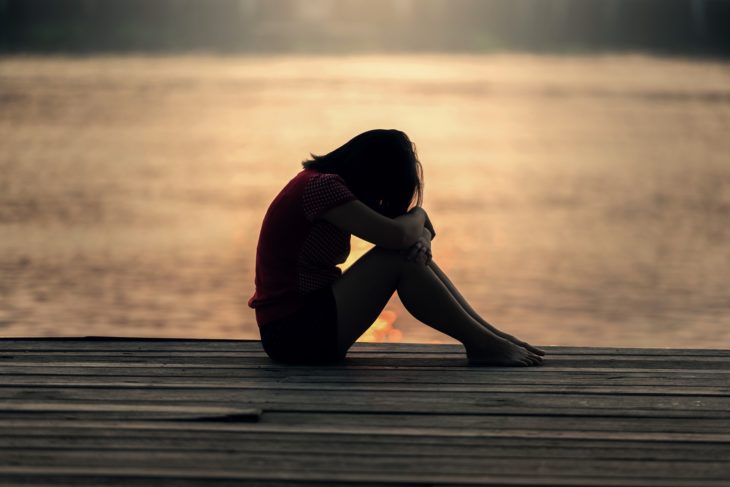I’ve said it briefly before, but I want to say it again in more depth: I’m not ashamed of my emotional disorder. In the six months since I started writing for a living, I’ve had a rash of people — okay, trolls — on the internet writing e-mails, leaving comments, and even writing blogs about my mental stability, but specifically saying that there’s something “wrong” with me.
I mean, kind of. I have Post-Traumatic Stress Disorder. I don’t think I’ve ever said explicitly why: Because I was in a long-term, abusive relationship, and because six months after I left it, I was raped. On top of that, I was diagnosed with ADHD when I was 13, and I’ve gone through a slew of diagnoses to figure out exactly why I feel emotions as intensely as I do, and my doctors and I have recently settled on it being sort of a generalized personality disorder — not exactly one or the other of those listed in the DSM-V.

Source: Medium
Now, a personality disorder, according to the APA, is merely “ways of thinking and feeling about oneself and others that significantly and adversely affect how a person functions in many aspects of life.” It doesn’t mean having a bad personality, or having a personality that’s unbearable to be around. It means that the way I think and feel can be detrimental to my ability to cope with normal life situations. It means that I could think of and feel about things in a way that would be better for my sense of contentment.
I’ve been on medications for it, but the only medication that’s ever worked for me was medication to treat the ADHD. Pharmaceutical treatment for the depression and anxiety that come along with the disorders has consistently failed. Instead, I’ve chosen talk therapy, and specifically dialectical behavioral therapy, which has been tremendously helpful in teaching me how to keep my sometimes extremely intense emotions in check so that I can function in a normal life. And, overall, I do: I work, I have a healthy relationship, I get along with my family, I exercise, I make art, I hang out with my friends. From time to time I spiral into massive panic attacks, and that’s OK. My boyfriend, friends, and family are aware of it and know what I would like them to do when I’m getting out of control, which is mainly to reassure me.
I’m not exactly shy about talking about this. There are specific life situations that have been affected by my PTSD and the personality disorder that I keep private because it’s not relevant to anyone’s understanding of me, what I do, or themselves. But if and when people ask me about my mental health, in a spirit of genuine curiosity, compassion, or inquiry for one’s own reference, I’m happy to share my experiences.

Source: Big Think
So it’s baffling to me that anyone would chide me by saying things like “You have a mental disorder” or “Next stop: the psychiatrist!” as if I should feel ashamed. The funny thing about that last one was that it was posted, coincidentally, right when I was about to head off to my therapist. I’ve been going to a therapist on and off since I was 12. So, um, yes? That actually was my next stop! And it was a good thing, because at the time I was being massively trolled by a group of MRAs and needed help figuring out how to deal with it.
It’s hard for me to feel shame about it, is what I’m saying. It’s a normal part of my life, as it is for the 18.4 percent of American adults who have a mental illness and the 13.4 percent who receive mental health services. It doesn’t make me lie, it doesn’t make me exaggerate, it doesn’t make my ideas or opinions or feelings invalid, particularly those having to do with my own life. It doesn’t mean I’m delusional and it certainly doesn’t mean I’m unintelligent, unable to think straight, or insane — “insanity” is a legal term having to do with psychosis, by the way, and there’s a very, very big difference between emotional disorders that make it difficult for the sufferer to process their emotional responses to normal life situations, and psychotic disorder, which alters your ability to perceive reality.
It should go without saying that I dismiss anyone’s armchair diagnosis of my mental health based on the writing I produce — but it doesn’t go without saying, or else I wouldn’t be bothering to write this and no one would bother to try to tell me what’s wrong with me. When you’ve worked for years with doctors who know you in real life, have seen you and talked to you face-to-face, and have worked with you over time to formulate a diagnosis, you know who to take seriously.

Source: Indy100
I would be remiss, of course, if I didn’t mention the history of women and mental health, particularly the diagnosis of “hysteria” that that was used as a way to invalidate women, to isolate them in sanitariums, and to perform surgeries on them involuntarily. Despite the fact that the medical community has stopped using hysteria as a diagnosis, “hysterical” is still a word that’s thrown around about feminists on a fairly regular basis (I would link to a Christina Hoff Sommers video but — no). So it’s really not a very big surprise to me that the writing I do as a feminist is what spurs the “You’re crazy!” reaction, usually from men who are opposed to my political beliefs.
So it’s plainly in the open now: I have emotional disorders. I regulate them well with the help of a team of professionals. They affect my life and inform my writing, but they neither render my ideas invalid nor my personality intolerable. Cut it out with the shaming language: A good fifth of the people you know have similar troubles and would be better served by your compassion than your ire.
Original by
